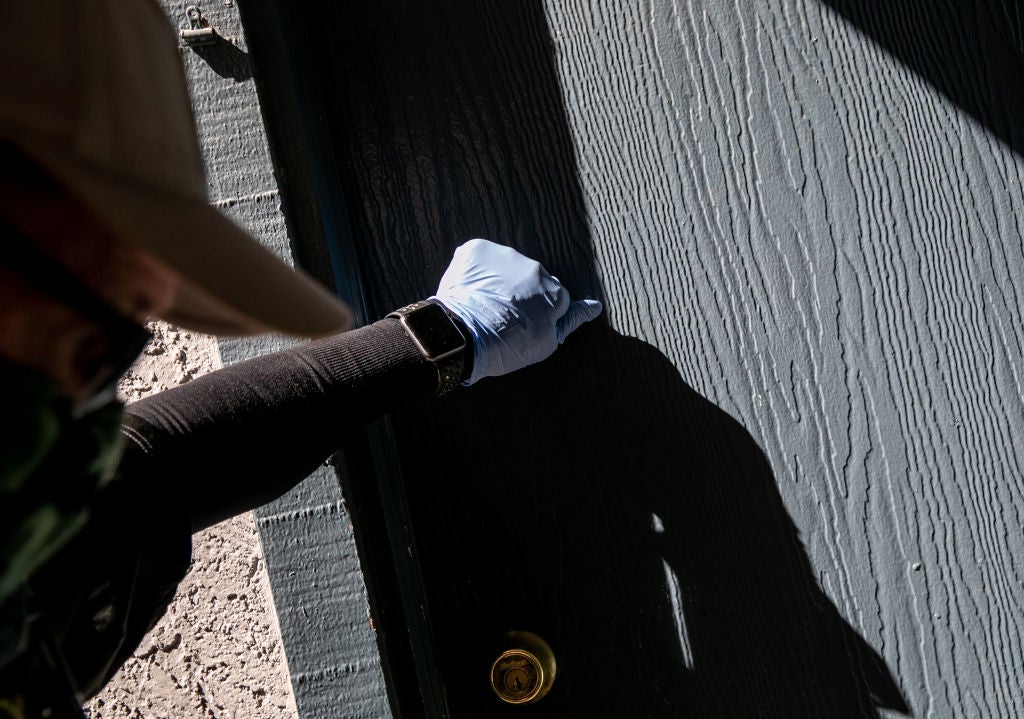Mass eviction fears as 12 million will owe ‘$6,000 in unpaid rent and bills by January’
‘The tidal wave is coming,’ says lawyer Charlie Harak

Your support helps us to tell the story
From reproductive rights to climate change to Big Tech, The Independent is on the ground when the story is developing. Whether it's investigating the financials of Elon Musk's pro-Trump PAC or producing our latest documentary, 'The A Word', which shines a light on the American women fighting for reproductive rights, we know how important it is to parse out the facts from the messaging.
At such a critical moment in US history, we need reporters on the ground. Your donation allows us to keep sending journalists to speak to both sides of the story.
The Independent is trusted by Americans across the entire political spectrum. And unlike many other quality news outlets, we choose not to lock Americans out of our reporting and analysis with paywalls. We believe quality journalism should be available to everyone, paid for by those who can afford it.
Your support makes all the difference.Millions of Americans out of work due to the coronavirus pandemic are falling further behind in rent and bill payments, raising the prospect of mass evictions next year.
Some 12 million renters will owe an average of $5,850 in rent and utilities by January, according to a report Moody's Analytics.
Meanwhile, the government's federal eviction moratorium is set to expire on 31 December and lawmakers are yet to agree on a second coronavirus stimulus package.
"The tidal wave is coming," Charlie Harak, a senior attorney at the National Consumer Law Center, told the Washington Post.
"It's going to be really horrible for people. The number of people who are now 90 days behind and the dollars they are behind are growing quite significantly."
Last month, 9 million renters said they could not keep up with payments to landlords, Census Bureau survey data shows.
People of colour have been hit particularly hard by Covid-19 itself and the economic impact caused by it. Families with young children are also struggling, the data shows.
Some 21 per cent of families with children said they were behind, while 29 per cent of black families and 17 per cent of Latinos said they were too.
Nikki Cornwell, a 36-year-old Nashville mother of two who is $4,000 behind on rent, fears she will get evicted in January. She is scheduled to appear in court on 5 January.
She told the Washington Post: "I will get evicted soon with my kids who are in virtual school and need internet. I've had bad moments, but never anything like this."
Many Americans who lost their jobs due to the pandemic were able to delay paying their rent under a national eviction moratorium.
But that safety net is due to be pulled away in January and, as things stand, there is nothing to replace it.
Capitol Hill has been deadlocked for months on a second coronavirus stimulus package and any deal looks like it is going down to the wire.
Further talks between Democrats and Republicans are scheduled to take place this week.



Join our commenting forum
Join thought-provoking conversations, follow other Independent readers and see their replies
0Comments